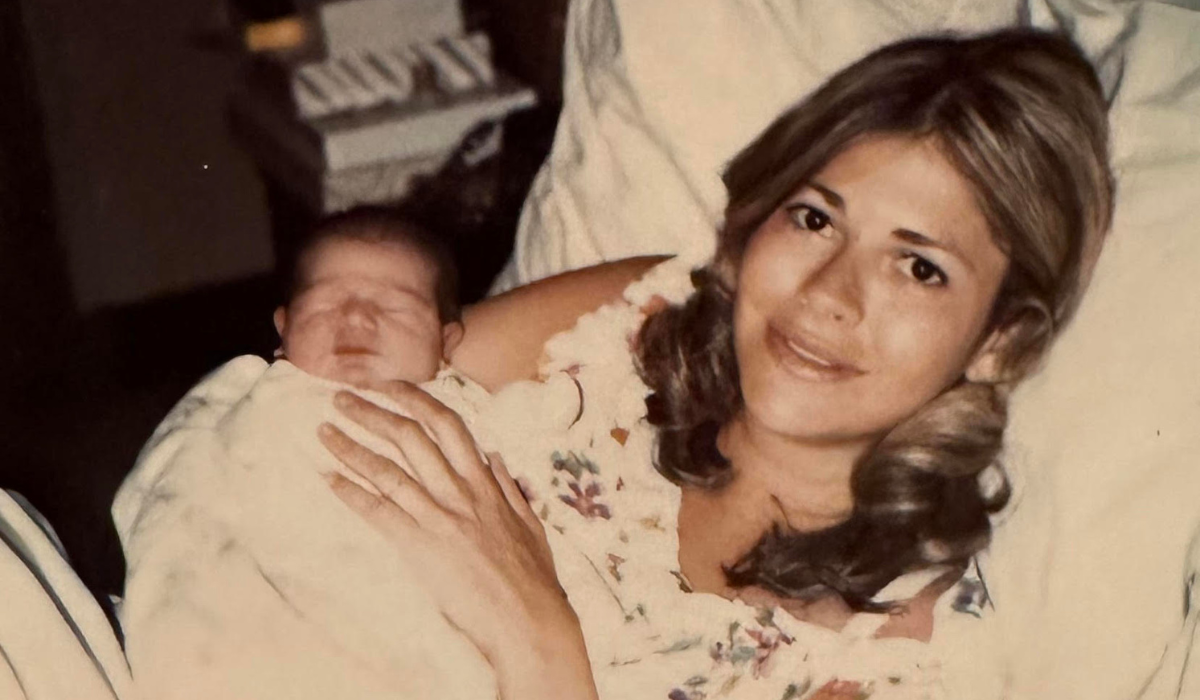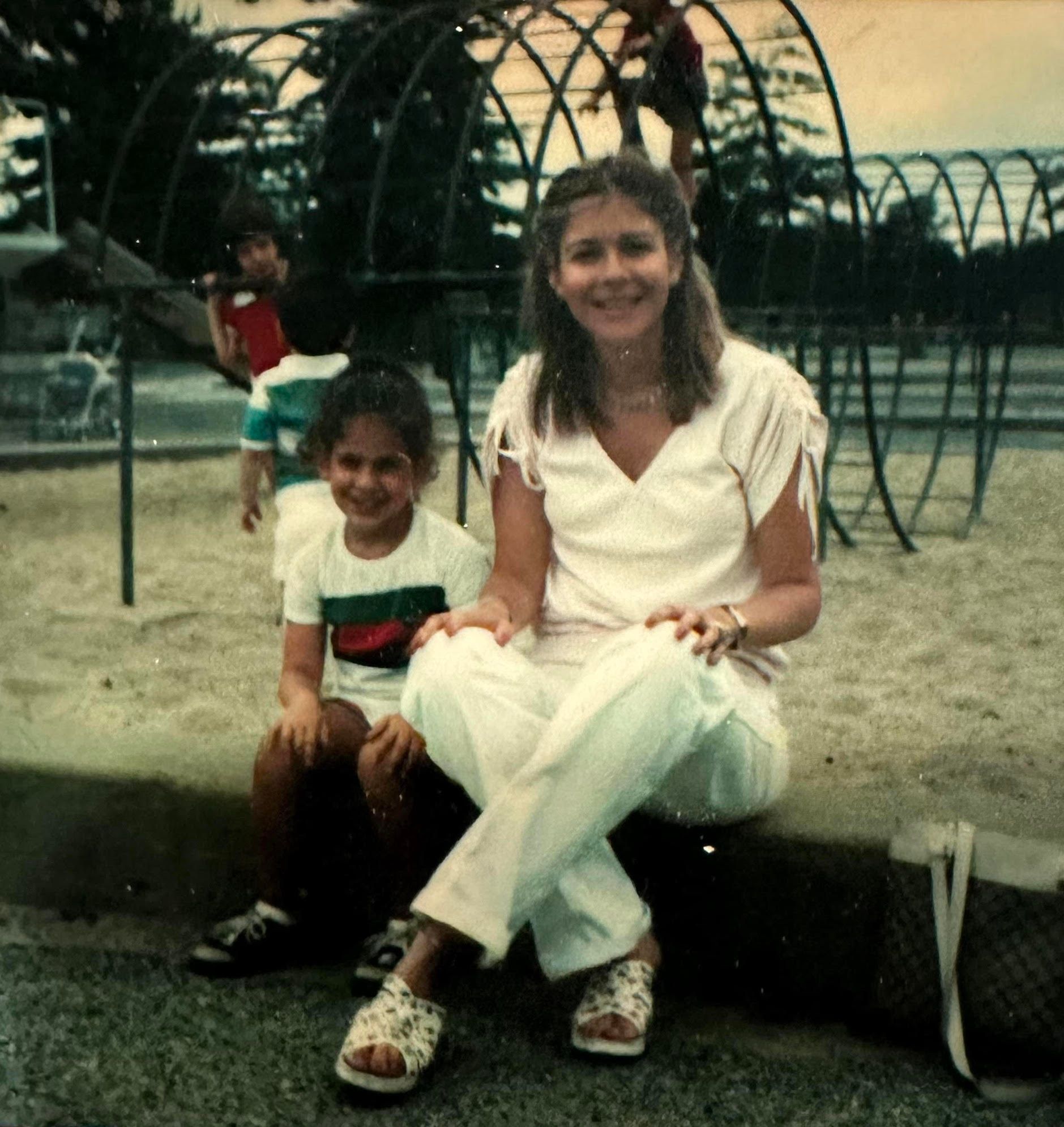Author Brenda Janowitz Just Lost Her Mother. What One Community of Women Did to Support Her Is Beautiful
The grief covers me whole, like a blanket draped over my body. At times, it feels like if I could just shake myself hard, like a dog when it comes in from the rain, I could get rid of it. Like I could be my old self again. But I can't. Because my mother just died, and that's not something, it turns out, you can simply shake off.
My mother's death has been hard. Isn't everyone's? But my mother's death has been hard in a way that most people can't understand. That's because four days after she died, my eighth novel was published.
My mother was beautiful. People always focused on her physical beauty, but the truth was, that was the least interesting thing about her. She was smart, and she was hilariously funny, even though her father used to tell her, "Men don't like funny women." (It turned out my dad did.) She was an amazing cook, and I always thought that everything that came out of her kitchen was the most delicious thing I'd ever tasted. (Even her famous brownies that I later learned were from a mix.) She was my best friend.
My mother died in the way that Hemingway once described falling into bankruptcy: gradually, then suddenly. After being diagnosed with Parkinson's two years ago, her health was slowly declining. Once, a woman who worked out with weights three times a week, she soon had trouble walking. There were countless issues, most of which were common to Parkinson's, none of which were fatal, we were told: frequent falls, a slow heart rate, exhaustion. We were constantly being advised by her doctors that she could live for years like this. So, she did her physical therapy. She went to her doctor's appointments. She got her hair and nails done every Wednesday.
We thought we had time. In February, I visited my parents in Florida. My father and I talked about how even though travel was difficult with her limited mobility, they'd fly up to New York in September 2024 for my younger son's bar mitzvah. Six weeks later, she had a seizure on Sunday and died on Friday.
We were expecting it. We weren't expecting it at all.
I rushed down to Florida after the seizure to see her. My brother and I brought jelly donuts—her favorite—to the hospital. We got to hold her hand and tell her how much we loved her. Even as I said goodbye to her, I still couldn't believe that she would actually die before my book came out. She was proud of me and all that I'd accomplished, and she is still my biggest supporter. I was in a full state of denial when I told my husband: "She'll hang on for a few more weeks. She would never do that to me."
But dying isn't something that someone does to you. It's just something that happens.
My agent encouraged me to cancel my book tour, the culmination of six months of planning. And she was right. I am barely able to keep myself upright (my husband and my dear friends are doing that for me), much less promote a book. Book promotion requires a level of being "on" and delivering a public persona that I simply cannot muster. Hours of time to travel from one place to the next, hours of time to do interviews, hours of time to make myself look presentable. Stamina to push your book without being too pushy, and smile, smile, smile. It's hard for authors to do under normal circumstances. I am having trouble finding the energy to shower each day. The thought of fake eyelashes, shapewear, and a friendly smile is beyond me.

Friends and family members told me not to worry about missing my publication day—after all, I could simply reschedule my tour and promote my book when I was ready. When the time was right.
But an author can't simply wait for when the time is right to promote a book. There are over one million books published each year in the United States. Every Tuesday brings a fresh crop of new books, each one struggling to reach the attention of readers, booksellers, and the rapidly shrinking list of outlets that offer book coverage. If you miss your very small, very finite window the week your book publishes, there are countless other authors and books lined up to push you out the following week. If the book does not get momentum right when it comes out, you can forget gradually, then suddenly. Without that first week's push, a book dies a very quick death.
I was ready for my book to die right alongside my mother. Instead, my friend Andrea Katz, who runs the Great Thoughts Literary Salon on Facebook, had other ideas. Practically overnight, she organized a campaign with over 50 authors, many of whom were major household names, to post about my book and to shepherd it out into the world for me. Their readers quickly responded, spreading the word. Soon, others were posting about it, encouraging their followers to support my book.
The outpouring of love was overwhelming. I could barely process it, along with the massive grief I was experiencing.

Friends came to my mother's shiva and told me about the posts they'd seen on social media. They name-checked their favorite New York Times bestsellers, authors they loved and read and followed. They wanted to know if I knew that this was happening. (I did.) They wanted to know if I knew each famous author personally. (I did not.) I didn't need to check social media myself—this enormous campaign orchestrated by Andrea was the talk of the shiva.
And what's more, the campaign did what was intended—my book did not die a quick death. The campaign got people to buy the book. It also encouraged people to vote for my book as the CBS New York Book Club with Mary Calvi's pick. I'd learned that I was one of the finalists for this honor a few hours after I got the call that my mother died.
When I won, I instinctively picked up the phone to call my mom to share the good news, the first person I called anytime something wonderful happened. But alas.
My mother's death has been hard. Isn't everyone's?
My mother used to say that she would always be with me, even when we were not physically close. She said it when I went off to college, she said it again when I traveled abroad for months at a time in college and law school. Then again, when I moved into my first New York City apartment. She meant that even when we were not literally together, we were still together in each other's thoughts. That, even when she was gone, she would still be with me. And I understand that now, as I hold her in my mind, my memories. I see her in my kids' faces.
I felt her with me as I delivered her eulogy, remembering how she always told me that public speaking was what I did best. I felt her with me through the week of shiva when my son bit into a donut, expecting a vanilla cream filling but getting jelly—her favorite—instead. I felt her with me when I had the support of over fifty women who, when I needed it most, treated me like family. As I grieve and learn to navigate a world without my mother, I carry this with me.

Brenda Janowitz is the author of eight novels, including The Grace Kelly Dress, which has been optioned for film by Hallmark/Crown Media. Her work has also appeared in The New York Times, The Washington Post, and other major publications. Janowitz attended Cornell University and Hofstra Law School. You can learn more at brendajanowitz.com and order her new book, The Audrey Hepburn Estate, here.
Please note that we may receive affiliate commissions from the sales of linked products.



